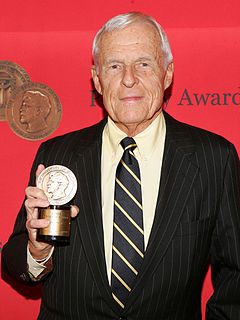A Quote by Malcolm Gladwell
Truly successful decision-making relies on a balance between deliberate and instinctive thinking.
Quote Topics
Related Quotes
There is always an element of realpolitik that has to be present in the conduct of any nation's national security affairs. At the same time, we have to also have a balance between realpolitik and Wilsonian principles of freedom and democracy and human rights. And maintaining that balance is the greatest challenge that we in the West, including the Federal Republic of Germany, have to face because it's many times a very difficult decision-making process.
My position is that the rate should align with the level of economic development. Because it is always about a balance, a balance of interests, and it should reflect this balance. A balance between those who sell something across the border and those who benefit from a low rate, as well as a balance between the interests of those who buy, who need the rate to be higher. A balance between national producers, for example, agricultural producers who are interested in it.
Americans are cultured from their earliest years to be either one-sided douloi or one-sided banausoi, i.e. either they cannot think abstractively/conceptually/orchestrally or else they can only think abstractively. Thinking in a truly rational dialectic between intuition and intellect is just beyond the reach of our nation of emotionalist helots. What prevails among us truly has to be called not thinking but "thinking," a pathetic surrogate for actual thinking for the benefit of existentially or modally crippled mentalities.

































